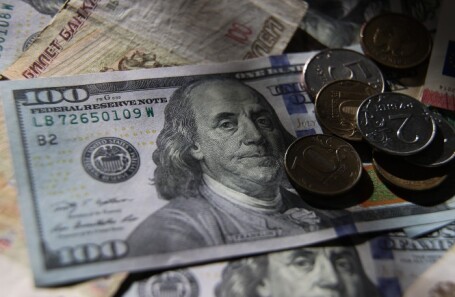The Central Bank has lowered the official exchange rates of the dollar and euro by more than 2 rubles. The official yuan exchange rate to the ruble has decreased to 11 rubles 79 kopecks. What are the reasons and consequences of the strengthening of the Russian currency?

As of Tuesday, June 18, the Russian currency has gained over 2% against the dollar, euro, and yuan. Two years ago, the ruble significantly strengthened against the dollar after the initial shock caused by sanctions when the dollar rate exceeded the 100-ruble mark. It’s still far from 50 rubles per dollar, as in June 2022, although some analysts do not rule out the dollar returning to that level.
Within less than a week of the introduction of new sanctions, the US currency has depreciated against the ruble by 2.2%, based on the CBR rate, to 87 rubles. One reason is the tax period when major exporters sell revenue. Supply has increased, unlike demand. However, importers always need foreign currency. But if they are not increasing their purchases of dollars, euros, or yuan, it does not mean that import volumes are decreasing. Says Evgeny Nadorshin, Chief Economist at PF Kapital:

Evgeny Nadorshin
Chief Economist at PF Kapital
Indeed, there is currently no noticeable increase in trading volumes for the yuan in the Moscow Exchange.
Analysts have questions about how the CBR is now setting the dollar and euro exchange rates. But the reason is more likely not in the policy of the regulator itself, but in the situation on the currency market after the cancellation of stock exchange trading with unfriendly currencies. Igor Vagizov, Director of the investment company Investland, continues:
Igor Vagizov
Director of the investment company Investland
Against the backdrop of some ruble strengthening, two more banks that previously conducted operations with dollars and euros have discontinued them. Last week, Intesa Bank, owned by the Italian group Intesa Sanpaolo, suspended euro conversions and transfers in that currency. Following suit, OTP Bank suspended operations for non-cash currency exchanges. The Russian subsidiary of the Hungarian group stopped providing services, citing new US sanctions against the Moscow Exchange.
Most likely, they still have the technical capability to conduct settlements in non-cash dollars and euros, but there is not much demand due to the specifics of their business, according to financial market expert Andrey Barkhota:

Andrey Barkhota
Financial Market Exper
Raiffeisenbank and Unicredit Bank continue to conduct operations with non-cash dollars and euros through their Russian subsidiaries. However, there are many restrictions. And the size of commissions for such operations probably does not please customers very much.


